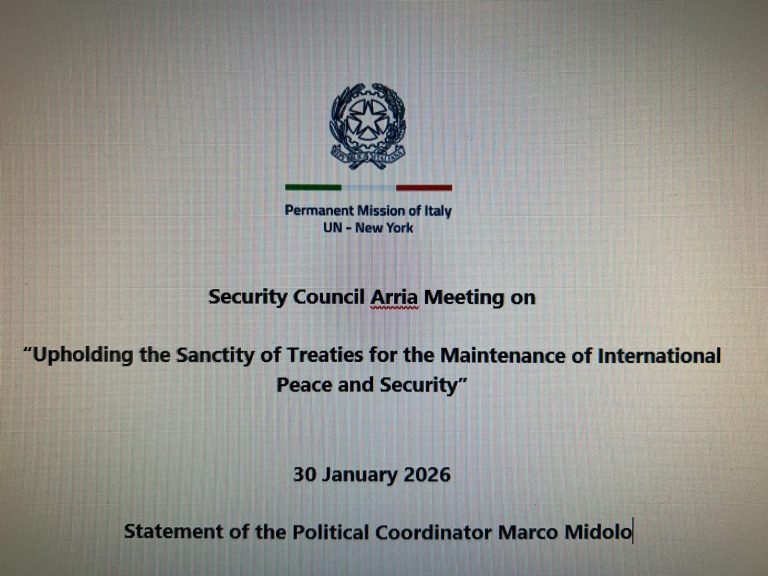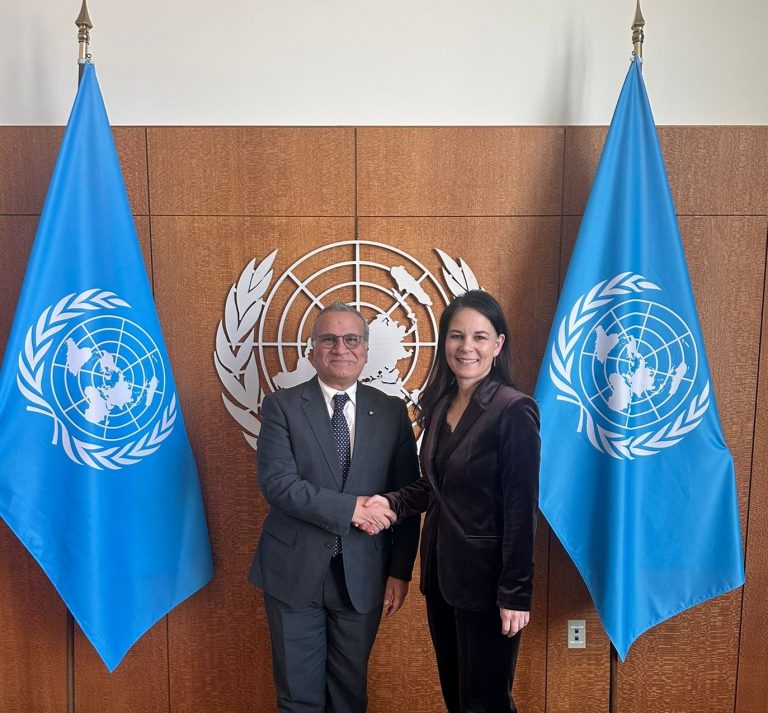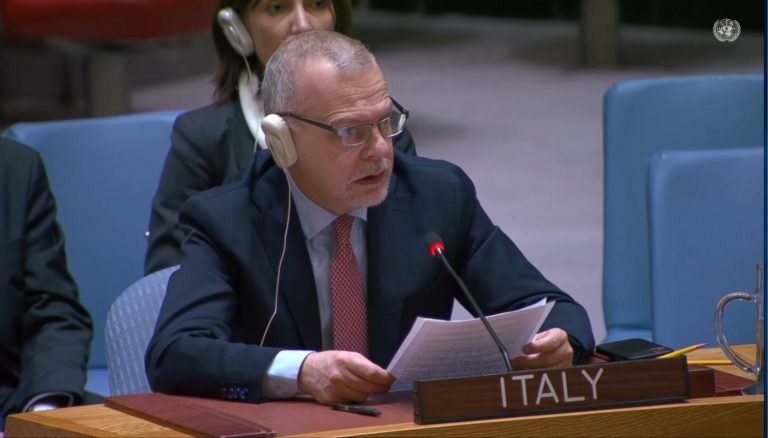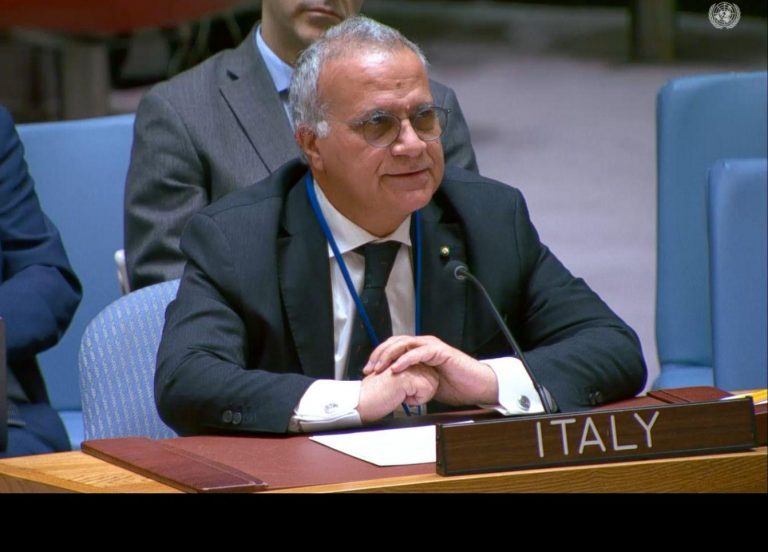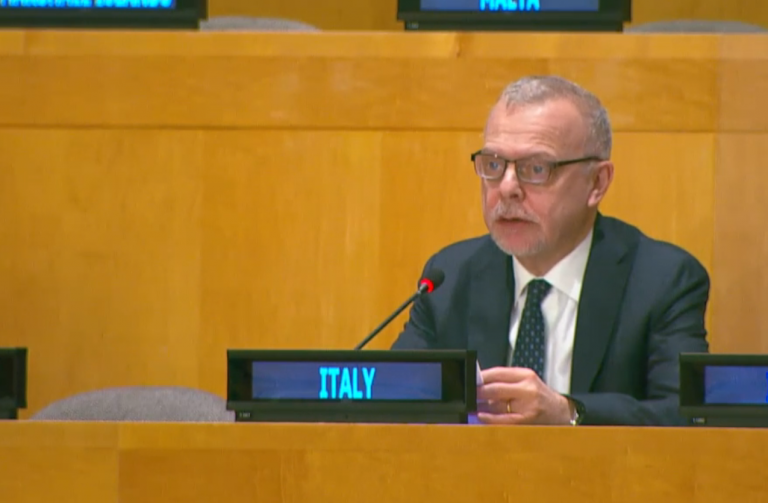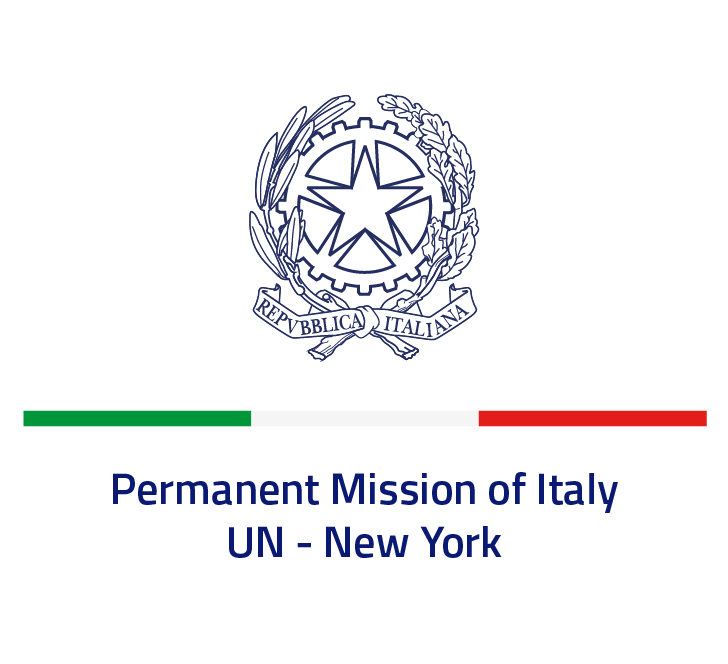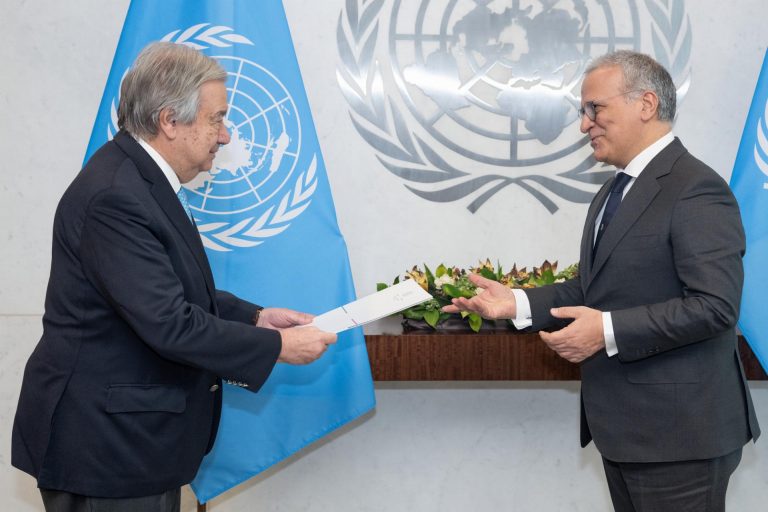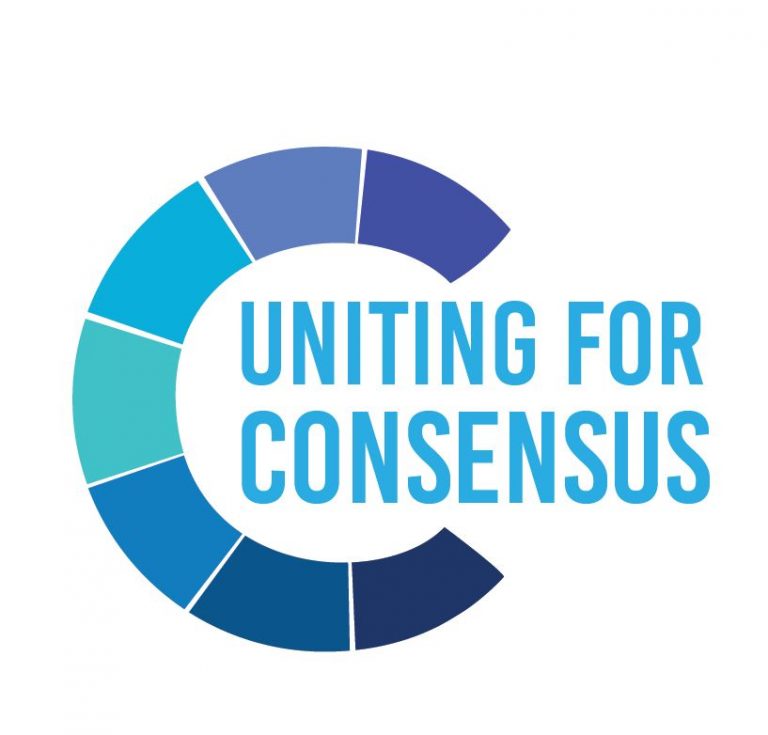SPEECH BY PRESIDENT OF THE REPUBLIC SERGIO MATTARELLA
(Courtesy Translation)
I would like to thank Matilda De Angelis. To be introduced also by La vie En Rose is truly inspiring.
I extend my greetings to the President of the Senate, the Vice-President of the House, the Ministers in attendance, the Vice-Presidents of the Senate, the Judge of the Court of Justice of the European Union. And to everyone here today, welcome to the Quirinale.
I am sure that I am speaking for all Italians by first and foremost sparing a thought for the Ukrainian women on this day. Mothers, professionals, young people, affected by unexpected, cruel, absurd violence. Women who courageously participate in the defense of their community, women forced to take shelter in emergency hideouts, who leave their homes and their country, who fear for their children, who care for the weakest, who mourn innocent deaths.
And many, too many, are the women who have already fallen in this unjustifiable conflict. In wars, women always pay a very high price. As women, as mothers, as life partners. Victims of the senselessness of war, often victims of brutal violence. Yet their strength in pain, their dignity, have always proved to be irreplaceable energies of resistance, cohesion, pacification, reconstruction.
I am very grateful to Oksana Lyvin for her heartfelt and courageous testimony.
Her career- the first woman in the world to conduct in Bayreuth and the first director of an Italian opera foundation -is in itself a model in a field – music direction, usually dominated by men. Today her mastery of music skills merges with her commitment to her country, which is the victim of a cruel and senseless invasion.
Thank you for your words, thank you for your example.
We owe our support to Ukraine’s women.
Our country has long – for many years – had an integrated and valued Ukrainian community. Their professional efforts in so many areas are of great help to us; they are often part of our families. We wish to express our gratitude and closeness to them in these dramatic days.
Our responsibility as citizens, as Europeans, calls us today to a stronger commitment to peace, urging the occupying forces to withdraw and the weapons to stop, calling for the international law to be restored and national sovereignties to be respected.
Indifference in the face of arbitrariness, of oppression, is one of the worst evils. At stake is not only the already great issue of a people’s freedom, but peace, democracy, law, the civilization of Europe and the entire human race.
In the images of the desperation of the young parents of little Kirill express the senselessness of war, the cruelty and cynicism of this aggression by the Government of the Russian Federation against Ukraine.
It is not tolerable – nor should it be even conceivable – that, in this new millennium, anyone would want to behave according to the power criteria of past centuries; with the expectation that the largest and strongest states have the right to impose their choices on their closest countries, and, if they do not cave in, to attack them with the violence of arms. Causing anguish, suffering, death, inhuman devastation.
This must be stopped, immediately, decisively, this backward turn of history and civilization must be stopped.
Opposing, today, this descent into confrontation and conflict comes at a price; it may cause costs to the economies of countries that oppose it, but these would be far less than if we didn’t stop this descent now.
As it has been mentioned, thinking about the future, the theme chosen for this year’s March 8, refers to young women, their condition, their desires and the difficulties they face. A condition that, in many ways, is common to all women, but which also has specific peculiarities.
I thank Minister Bonetti for her remarks.
I thank Lucia Minetti and the musicians who made this March 8 even more engaging. And Rai for the meaningful movies.
Matilda De Angelis, so effective in her presenting, has accompanied us with her readings on a sort of journey through the female condition from the beginning of the 20th century to the present, and I thank her very much. Certainly, no one can deny – as Elena Loewental has well written – that considerable step forward, toward effective equality, have been taken, thanks mainly to the efforts of feminist movements.
Despite our satisfaction with how far we have come, we cannot and should not delude ourselves on the actual equality we have achieved in various fields. In order to be credible in providing young women with a better future, we must be aware of the problems they have in the present and offer them more opportunities.
We listened with great interest to the testimonies of Federica, Evelyn, Tania, Fabrizia, and Giada. I thank them very much. Their accounts of their experience on the ground return an objective picture of the condition of women in Italy with of lights and shadows. And, in particular, they relay on constructive work and human experience, though still burdened with too many impediments, prejudices, obstacles.
Impediments, obstacles and prejudices that we have a duty to identify and remove – together, men and women – if we want to grow from an economic, cultural, social standpoint and we want to improve our no-less-important quality of life.
In Italy, young women invest more than their male peers in education. Women fare significantly better than their male counterparts in terms of graduation rates: 42.7 percent among women, 29.2 percent among men. Women, our young women, are a valuable resource.
But if we look beyond our close horizon, we find with regret that female graduates in Italy are twelve points below the average of European Union countries. We also know that Italy has a low employment rate among young women under the age of thirty. The percentage of employed among them is thirty points below the average of EU countries.
Moreover, the share of young women up to 34 years old who are neither studying nor working is too high in our country: more than 29 percent of women compared to the European average of 18 percent. In many cases, finding a work-life balance is the main concrete challenge.
One in five Italian mothers, two years after the birth of their child, decides to leave work – this is a defeat for the whole Italian society, which is also grappling with a serious demographic decline.
The state, central and self-government institutions need to tackle this issue.
First, by developing an efficient and widespread Welfare system capable of lifting as much as possible from women’s shoulders the burden for family care of children and the elderly. Second, by working to remove the material obstacles that discourage and keep young women away from educational paths. Because vocational training, study, specialization, advanced education, are crucial for finding employment and getting out of a condition of marginality and subalternity.
Young women offer a great potential for economic, social, civil growth.
It is a constitutional right of our fellow female citizens to be able to participate fully and effectively in the development of our country.
The Republic cannot tolerate this right being denied to such an important part of its society.
If it is the task of politics to break down the obstacles to a complete realization of their life plans, young women should be called upon to overcome their sense of discouragement and to take, with determination, the path of study, universities, specialization, and professional training.
It is not compatible with our civilization that, for equal tasks and employment, a pay gap perdures to the disadvantage of women.
We must no longer allow women and only women to be asked in job interviews, “Are you married? Do you have children? Do you plan to have any?”, associating, as it often is the case, their positive answer with a handicap.
We can no longer accept that women live in fear of violence. Be it in the form of brutal physical aggression – on the street, at work and leisure places, in the family – or in the form of more subtle but still serious psychological pressures, of true blackmail.
These are the issues that urge the whole society to their shared responsibility – everyone, women and men.
Young women imagine their lives quite differently, and certainly more freely, than the women of fifty years ago.
They have many positive role models to look up to. Extraordinary women stepping forward in research, making a name for themselves in different careers. Businesses, entirely run and operated by women, emerging in innovative sectors and leading the way in sustainability and quality of work. Women on the forefront in the various fields of art and culture, thanks to their talent and creativity.
Young women have multiple resources. They have new knowledge and communication skills, new and extraordinarily powerful communication and expression tools. They want to invest their uniqueness and, quite rightly so, demand space. A space that is not always recognized to them, as we have seen and heard.
This, too, is a commitment that society as a whole must make.
The growth of women’s leading presence in all spheres of political, institutional, economic and social life is a condition for a better and more stable development of our country.
This Day, March 8, is an incentive for us, for all women, and certainly for the whole Italy that wants to be better than this.
Happy March 8 to all women! And to our country! And to Europe!
* * * * *
STATEMENT BY MINISTER OF FOREIGN AFFAIRS LUIGI DI MAIO
To mark International Women’s Day, allow me to reaffirm Italy’s firm commitment to protect women’s rights, gender equality and women’s empowerment, and to combat all forms of discrimination and gender-based violence.
The 8th of March represents the annual opportunity to take stock of the progress made in this field, but above all to recognize the challenges that still face us and relaunch our commitment to tackle them. The theme chosen by the United Nations to celebrate the 8th of March this year, “Gender Equality Today for a Sustainable Tomorrow”, underscores the unbreakable link between gender equality and sustainable development. These issues are also the focus of the meeting of United Nations Commission on the Status of Women (CSW), which is scheduled to open next week in New York and at which Italy will not fail to make a propositional contribution.
In these last twelve months, we have worked to foster a sustainable and inclusive economic recovery and overcome the negative fallout that the Covid-19 pandemic also had in the field of women’s economic empowerment and women’s access to education and training.
In these past few months, in the capacity as rotating President of the Committee of Ministers of the Council of Europe, we decided to include the promotion of women’s empowerment and the struggle against gender discrimination among our priorities and we are unrelentingly working to primarily promote the Council of Europe Convention on preventing and combating violence against women and domestic violence (better known as the Istanbul Convention), the most advanced international instrument to prevent, combat and punish gender-based violence.
At the same time, we cannot forget that in the last 12 months we have continued to witness crises and conflicts worldwide which have had inevitable repercussions not only on people’s safety but also on the protection of their rights, with especially serious effects on the most vulnerable population segments, including women and girls.
Last summer, the crisis that suddenly broke out in only a few weeks in Afghanistan produced a dangerous setback in the progress made in the preceding two decades in terms of human rights and fundamental liberties, especially the rights of women and girls to access political and economic life, health and education. From the very beginning, Italy resolutely promoted coordinated international action, firstly within the framework of the United Nations and of our Presidency of the G20, in order to avoid nullifying the results achieved in the two decades of the international community’s commitment to foster the rights Afghan women and girls. Also at national level, the protection of women’s and girls’ rights to empowerment is a commitment that we have transversally incorporated into the initiatives envisaged in the National Plan for Afghan People.
In these past few weeks, the ongoing conflict in Ukraine has shown that we cannot lower our guard, even in the heart of our Europe. The crisis has already had devastating effects on the respect for human rights and women are especially exposed to the enormous risk of suffering violence, abuse and discrimination, including the risk of losing access to education and essential healthcare services. In only a few days, more than 1.7 million people, mostly women and children, have left Ukraine and are now in a condition of serious vulnerability.
In these extremely difficult and distressing times, I would like to express my closeness and solidarity to all Ukrainian women and girls and to all the women who, everywhere in the world, have forcefully voiced their protest for the extremely serious and unjustified military aggression against Ukraine. I look with sincere admiration at your courage and your strength in these dramatic times. Italy will not fail to assure you its utmost support and commitment.







